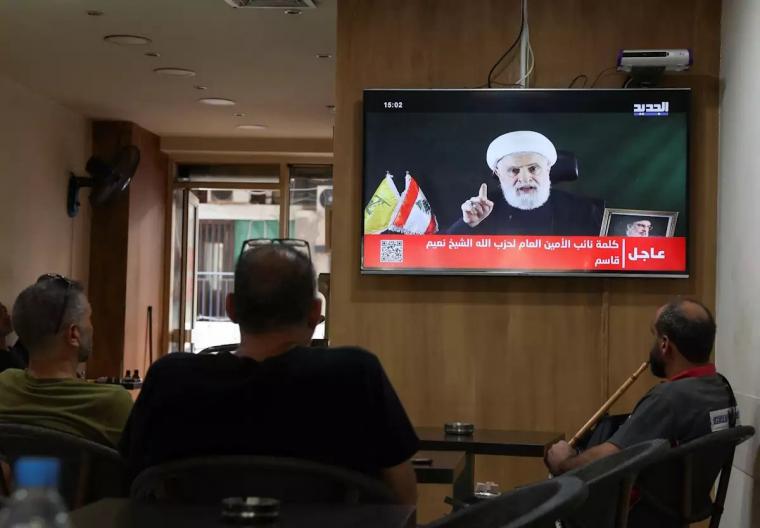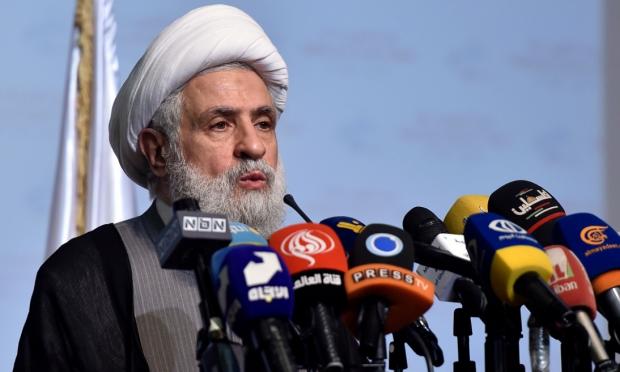On Tuesday, October 15, 2024, Hezbollah's Deputy Secretary-General, Naeem Qassem, stated that the only way to halt the ongoing clashes with Israel is through a ceasefire.
In a recorded speech broadcasted by Hezbollah's television network, Qassem, who is seen as the successor to Hassan Nasrallah, threatened Israel with more and more devastating strikes if it does not accept the ceasefire proposal.
"The solution is a ceasefire; we are not speaking from a position of weakness. If the Israelis do not want this, we will continue," Qassem emphasized, adding that Hezbollah has adopted a new strategy since last week, which "focuses on making Israel suffer."
The deputy leader of Hezbollah also emphasized that "after the ceasefire, based on an indirect agreement, the settlers will return to the north, and further steps will be planned." He reminded that his organization has the right to strike anywhere in Israel because its enemy has done the same in Lebanon.

Na'im Qassem, who is considered the de facto head of the organization after the assassination of its Secretary-General Hassan Nasrallah by Israel on September 27, threatened Israel, stating that "hundreds of thousands of citizens, even more than two million, will be at risk every moment, every hour, every day, and we will focus on targeting the Israeli army and its centers and barracks."
"Israel risks running out of ammunition for Intercepting missiles," write the Financial Times
Israel appears to be facing a potential shortage of ammunition used by missile defense systems to intercept enemy aerial threats, according to a report by the Financial Times on October 15, 2024, citing expert analysts and security officials.
Amid Israel's reprisals against Iran following the ballistic missile attack launched by Tehran on October 1, 2024, and the escalation of conflicts with Hezbollah in Lebanon, the IDF is facing the possibility of running out of valuable ammunition.
The decision by the US to deploy a THAAD (Terminal High-Altitude Area Defense) battery in Israel, along with the presence of American naval forces in the broader region, underscores the importance of having operationally functional air defense systems during saturation attacks with ballistic missiles.
However, the daily barrage of rockets and short-range missiles is gradually depleting Israel's stockpile, such as the Tamir interceptor missiles fired by the Iron Dome system.
"The issue of Israel's ammunition is serious," said Dana Stroul, a former official at the US Department of Defense, who added that "if Iran and Hezbollah attack Israel simultaneously, then Israeli air defense will have to expand and extend."
She continued by stating that "supplies of ammunition and missiles are not unlimited" and "the US cannot continue parallel military support for Israel and Ukraine at the same rate." On the other hand, the CEO of the Israeli state-owned company Israel Aerospace Industries stated that some of the production lines operate 24 hours a day, seven days a week, to meet the obligations and operational needs of the IDF.
"Do not underestimate Hezbollah"
At the same time, retired General Asaf Oron, who served in the Israeli army, argued that Hezbollah has not fully demonstrated its arsenal and capabilities, and therefore things could become even more difficult for Israel.
He stated that Hezbollah has so far launched about 10% of its estimated pre-war capacity, firing a few hundred rockets a day instead of 2,000.
At the same time, he noted that this is a conscious choice by Hezbollah not to completely deplete its own stockpile, and for this reason, its ability to launch a strong and large-scale attack should not be underestimated in any way.




